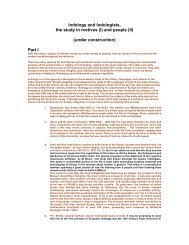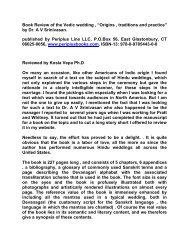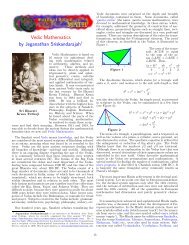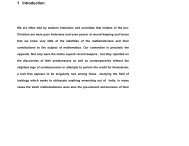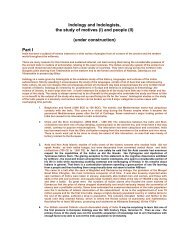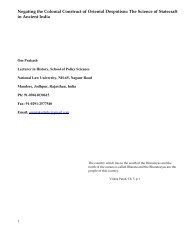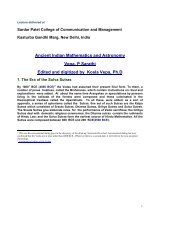The Dhaarmik Traditions - Indic Studies Foundation
The Dhaarmik Traditions - Indic Studies Foundation
The Dhaarmik Traditions - Indic Studies Foundation
Create successful ePaper yourself
Turn your PDF publications into a flip-book with our unique Google optimized e-Paper software.
possible, for though there is Disorder (Adharma), it exists, and can exist only<br />
locally, for a time, and in particular parts of the whole. Order however will and,<br />
from the nature of things, must ultimately assert itself. And this is the meaning<br />
of the saying that Righteousness or Dharma prevails. This is in the nature of<br />
things, for Dharma is not a law imposed from without by the Ukase of some<br />
Celestial Czar. It is the nature of things; that which constitutes them what they<br />
are (Svalakshana-dharanat Dharma). It is the expression of their true being<br />
and can only cease to be, when they themselves cease to be. Belief in<br />
righteousness is then in something not arbitrarily imposed from without by a<br />
Lawgiver, but belief in a Principle of Reason which all men can recognize for<br />
themselves if they will. Again Dharma is not only the law of each being but<br />
necessarily also of the whole, and expresses the right relations of each part to<br />
the whole. This whole is again harmonious, otherwise it would dissolve. <strong>The</strong><br />
principle which holds it together as one mighty organism is Dharma. <strong>The</strong><br />
particular Dharma calls for such recognition and action in accordance<br />
therewith. Religion, therefore, which etymologically means that which obliges<br />
or binds together, is in its most fundamental sense the recognition that the<br />
world is an Order, of which each man, being, and thing, is a part, and to which<br />
each man stands in a definite, established relation; together with action based<br />
on, and consistent with, such recognition, and in harmony with the whole<br />
cosmic activity. Whilst therefore the religious man is he who feels that he is<br />
bound in varying ways to all being, the irreligious man is he who egoistically<br />
33



